Welcome to “Out There”, a collaborative series with Kathmandu. Across four articles, Rolling Stone explores the unique intersection between creativity and the great outdoors.
This article was created on the Traditional Lands of the Yuggera nation. We pay respect to their Elders past, present and emerging.
Please note, the activities in this article are undertaken by experienced practitioners and should not be attempted without professional guidance.
“About five years ago, I met a community of people that were into highlining. They showed me the ropes — quite literally,” says Ferg Baker. Ferg is one of the more prominent highliners in Queensland’s burgeoning highline and slackline community.
Highlining is the rare extreme sport that’s as exhilarating as it is meditative. Essentially, it involves adventurers walking across a tightrope suspended between two key points. Once on the line, they’ll walk above waterfalls, canopies, or between mountains — balanced perfectly atop their own personal horizon.
“It’s an incredibly present and aware state of mind,” continues Ferg. “Initially, you feel fear. You then need to consciously come to grips with that fear; tap into trust and flow. Then you find a calm state on the mind — where you’re free to enjoy it, without that fear. I feel very alive in that space.”
As he stands suspended above a rushing waterfall in Queensland’s Cedar Creek, it’s easy to see why. From the distance, fellow highliner Alex watches on.
Love Music?
Get your daily dose of everything happening in Australian/New Zealand music and globally.
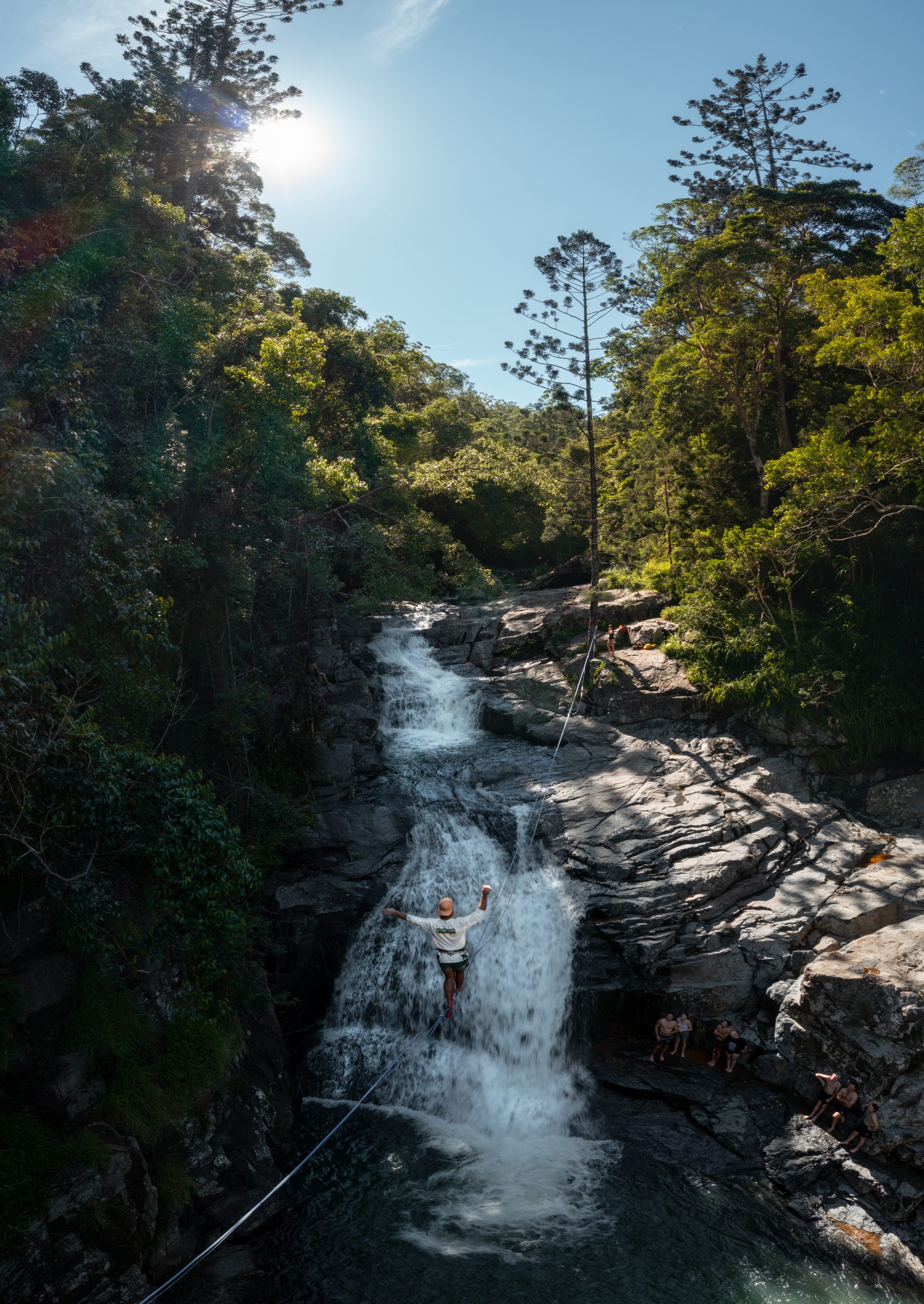
“I got into slacklining by being around rock-climbing. It’s something we do when we’re not climbing. Eventually, that evolved into putting the lines up higher. I used to feel very scared when I first started highlining. Now I just feel very peaceful. At ease with everything.”
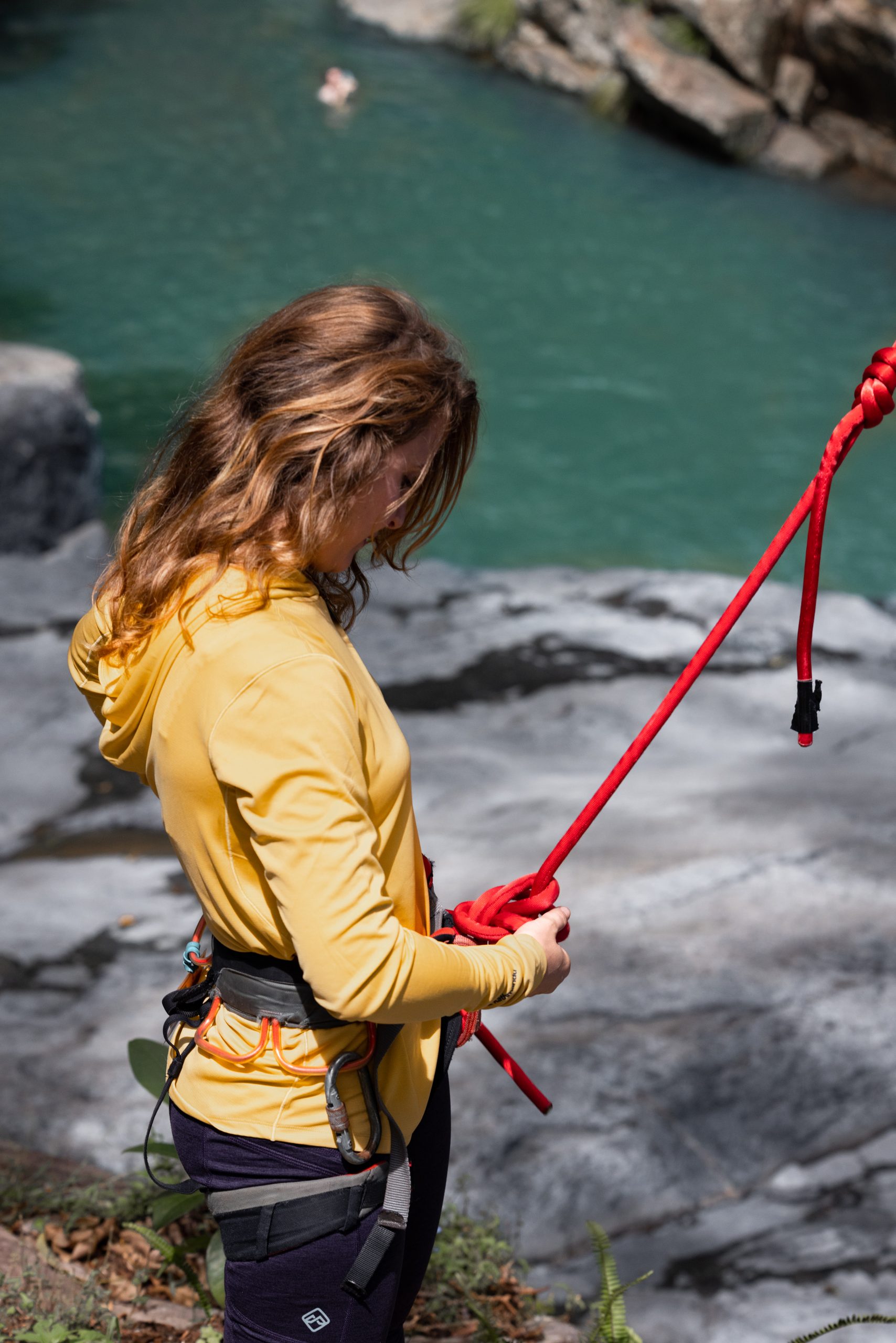
Both highliners describe the experience as being like nothing else on Earth. A state of heightened focus in which the beauty of nature comes clearly into view.
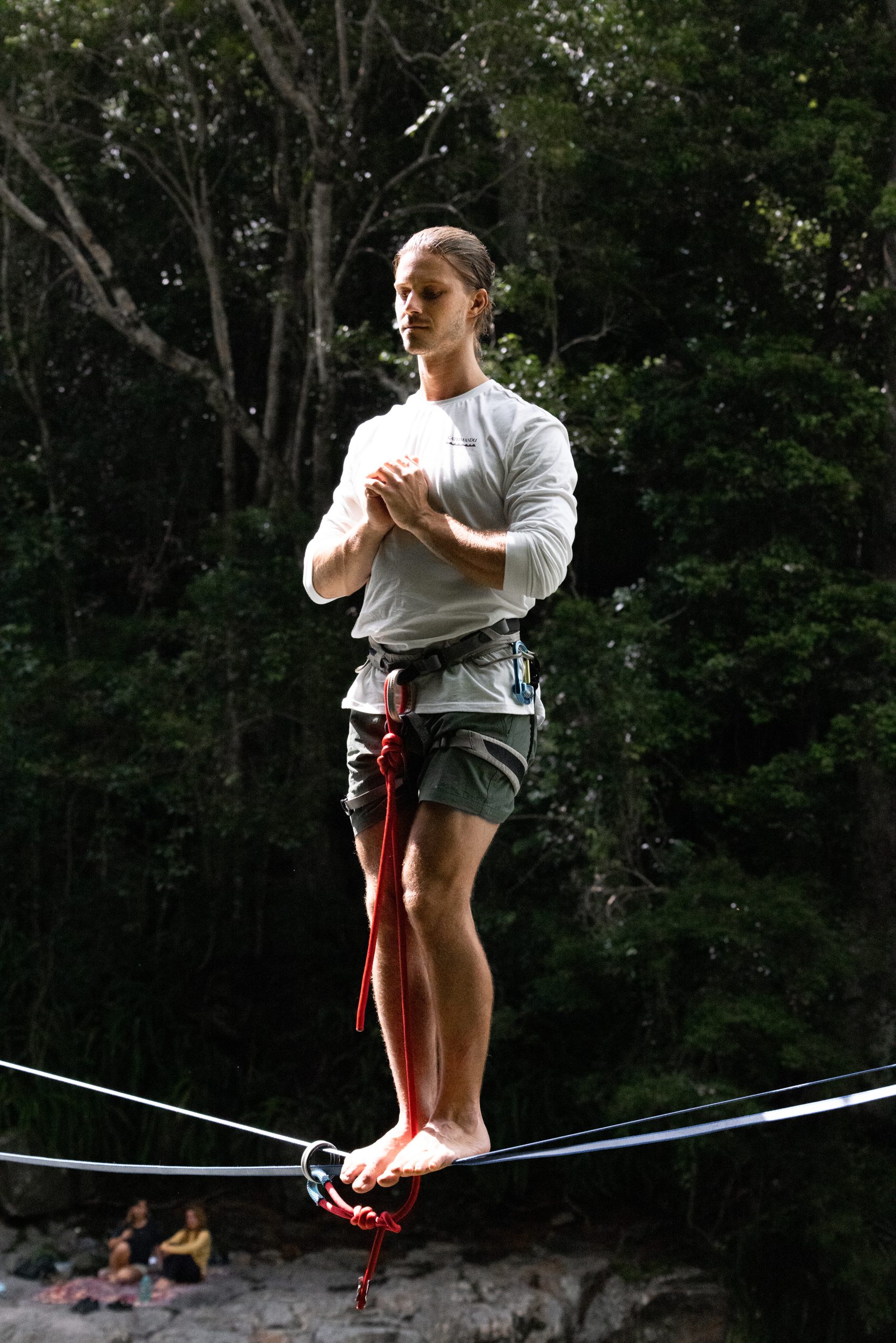
“I’m always grateful wherever the location is,” says Ferg. “It’s always in nature and you always need a group of people to come together and help you rig the line. So there’s always community, there’s always beauty in the surrounding, and there’s always this pure joy whenever I’m out there.”
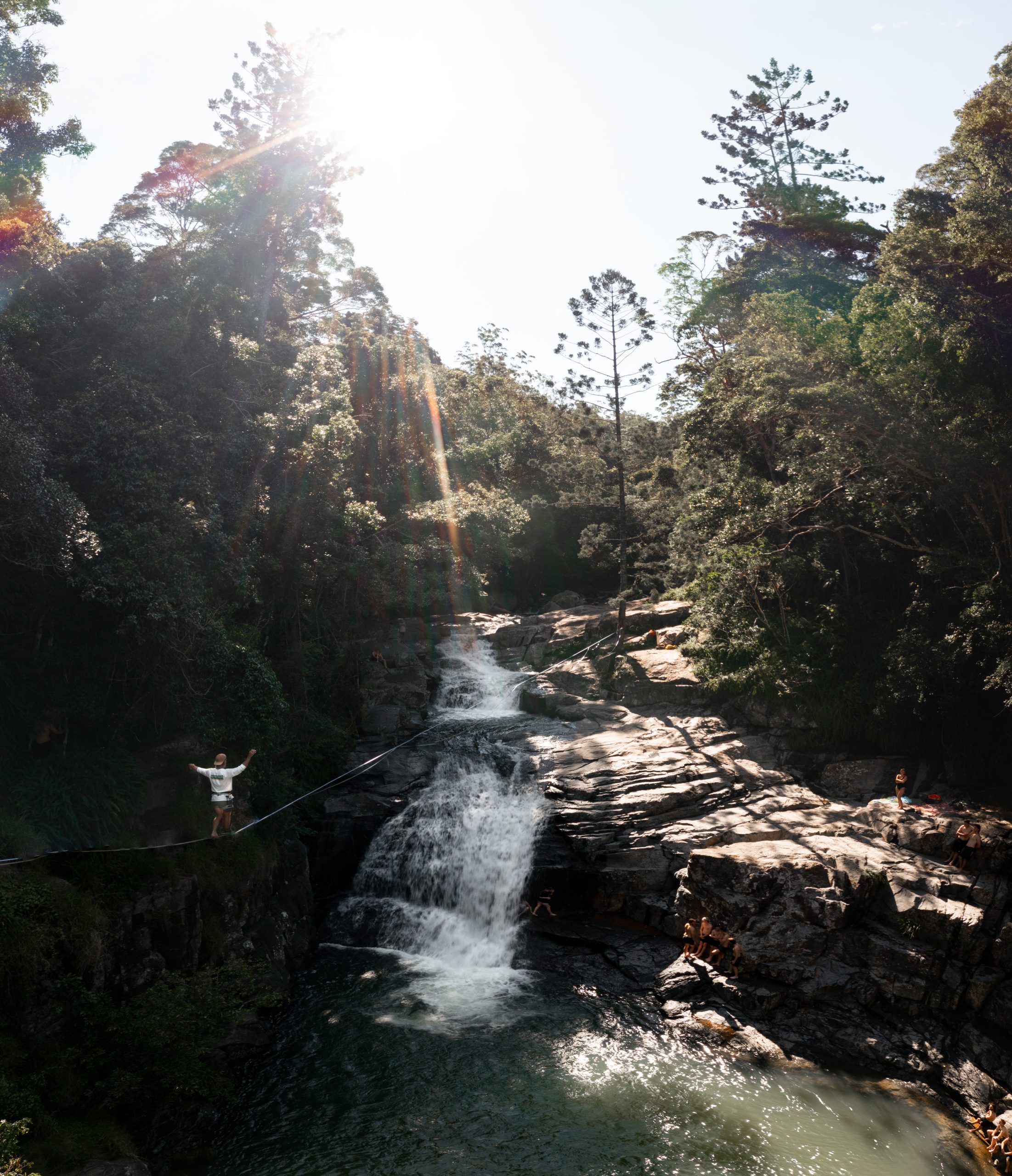
“There’s amazing people around,” says Alex. “This particular location, the creek is beautiful due to the recent rain. Looking at the waterfall and how hard it came down—it’s invigorating.”
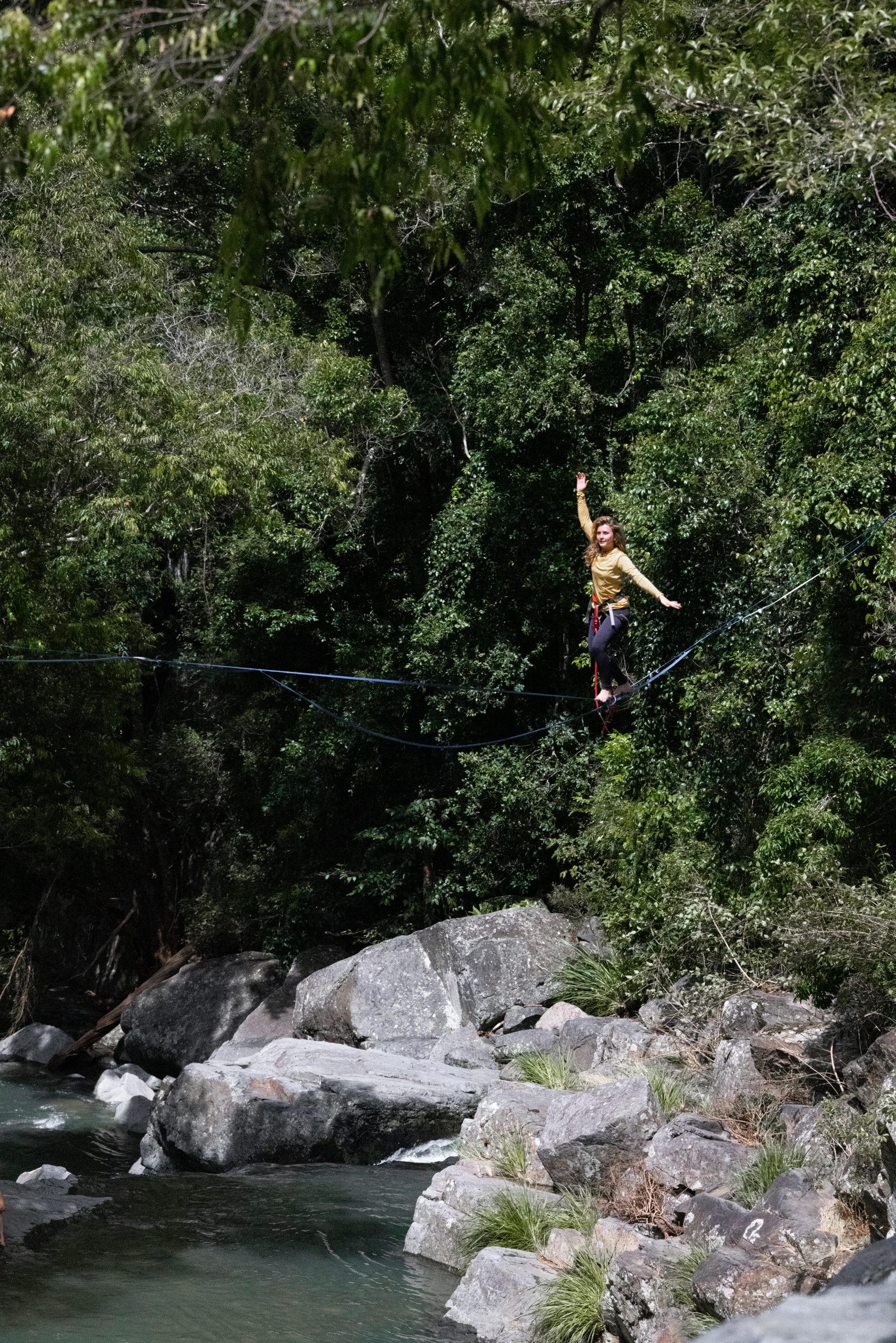
Like many outdoor endeavours — highlining creates an environment to look further inward. As a deeper connection to nature is formed, so too is the understanding of self. Furthermore, it’s hard to focus on anything but the present when you’re suspended up in the air. Balance, in this instance, is cultivated both physically and mentally.
“I think slacklining is a really good meditative practice because it’s impossible to have chatter in your mind. Because as soon as the chatter starts, you fall off the slackline,” says Alex. “You know exactly if you’re doing it right, because you stay on the line.
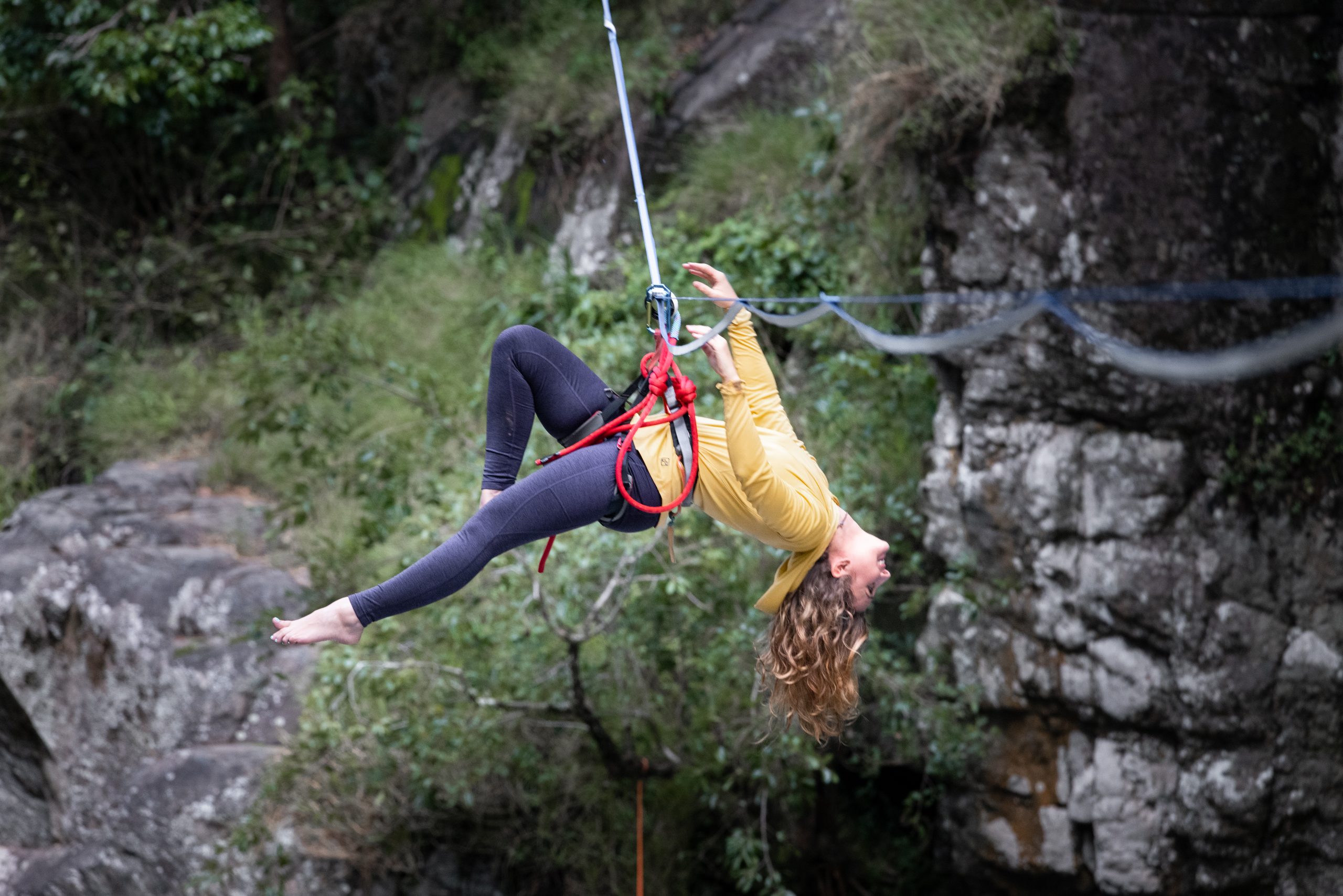
“Trust yourself and trust the process. Don’t fight it too much. Just embrace it — embrace all the feelings.”
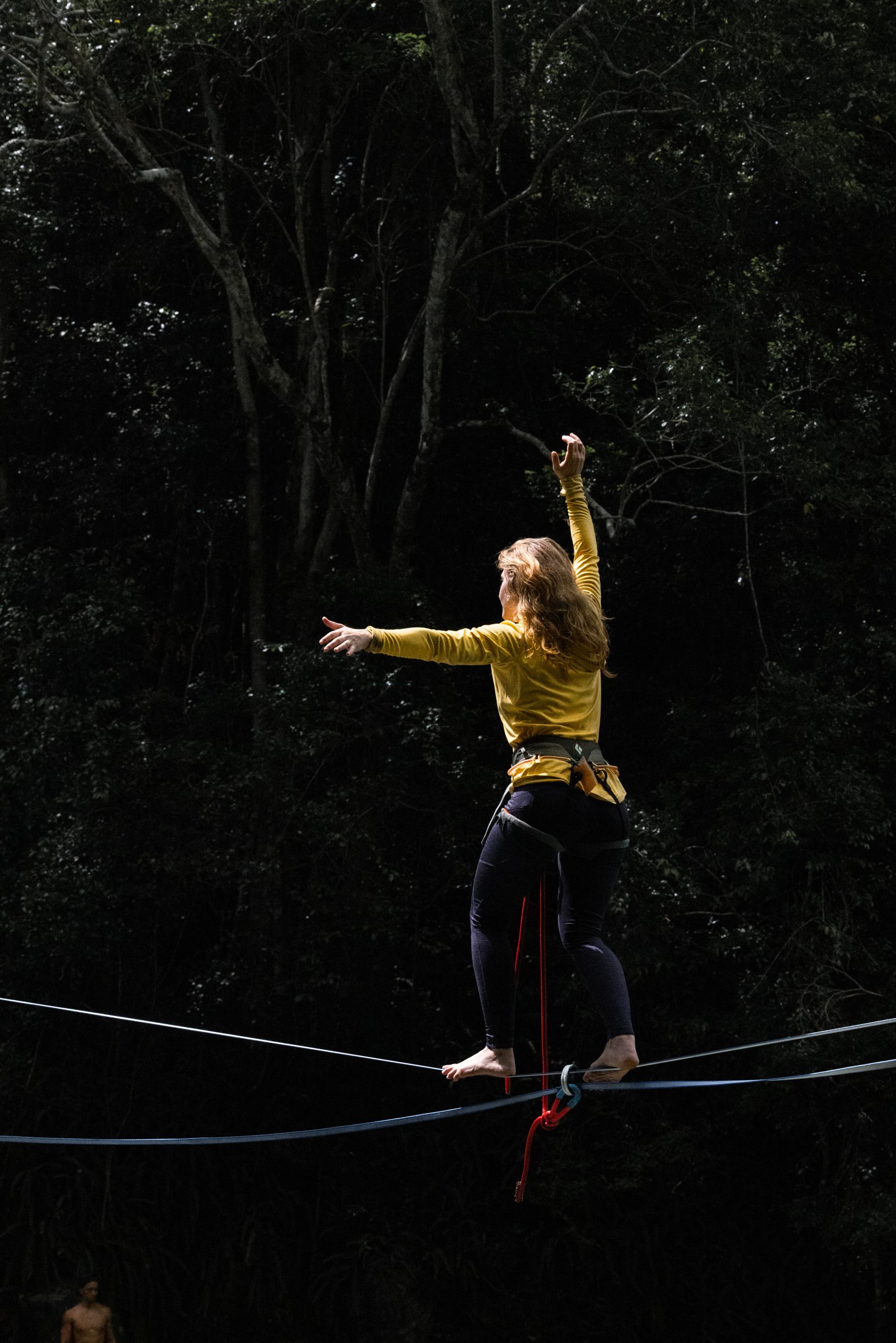
For Ferg, slacklining has been a tool to confront fear — to transform it into a catalyst for positive growth.
“Nothing has allowed me to confront fear as constructively as slacklining and highlining,” he says. “You’re in a confronting space where fear and anxiety are alive. And yet, the practice is so simple that you’re able to break down those emotions in a way that is unique.
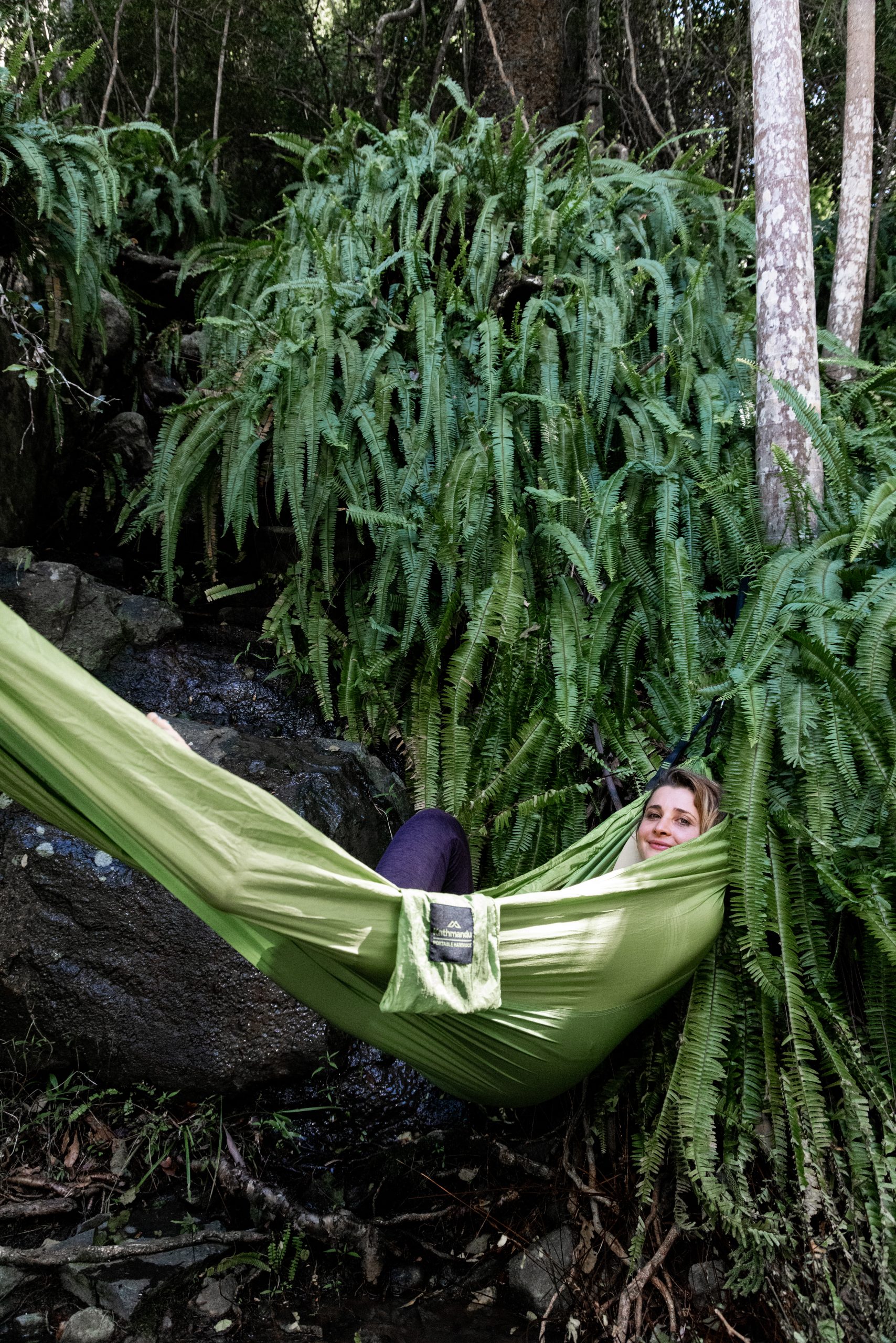
“With slacklining, there’s only one thing you’re trying to do: stay on the line. It’s a simple enough task that when you confront those emotions and beat fear with trust in yourself, the line calms itself. Your body calms itself. You receive instant feedback. It’s a beautiful lesson every time. You take those lessons into your day-to-day life. It’s incredibly addicting, because you know how much you grow from it.”
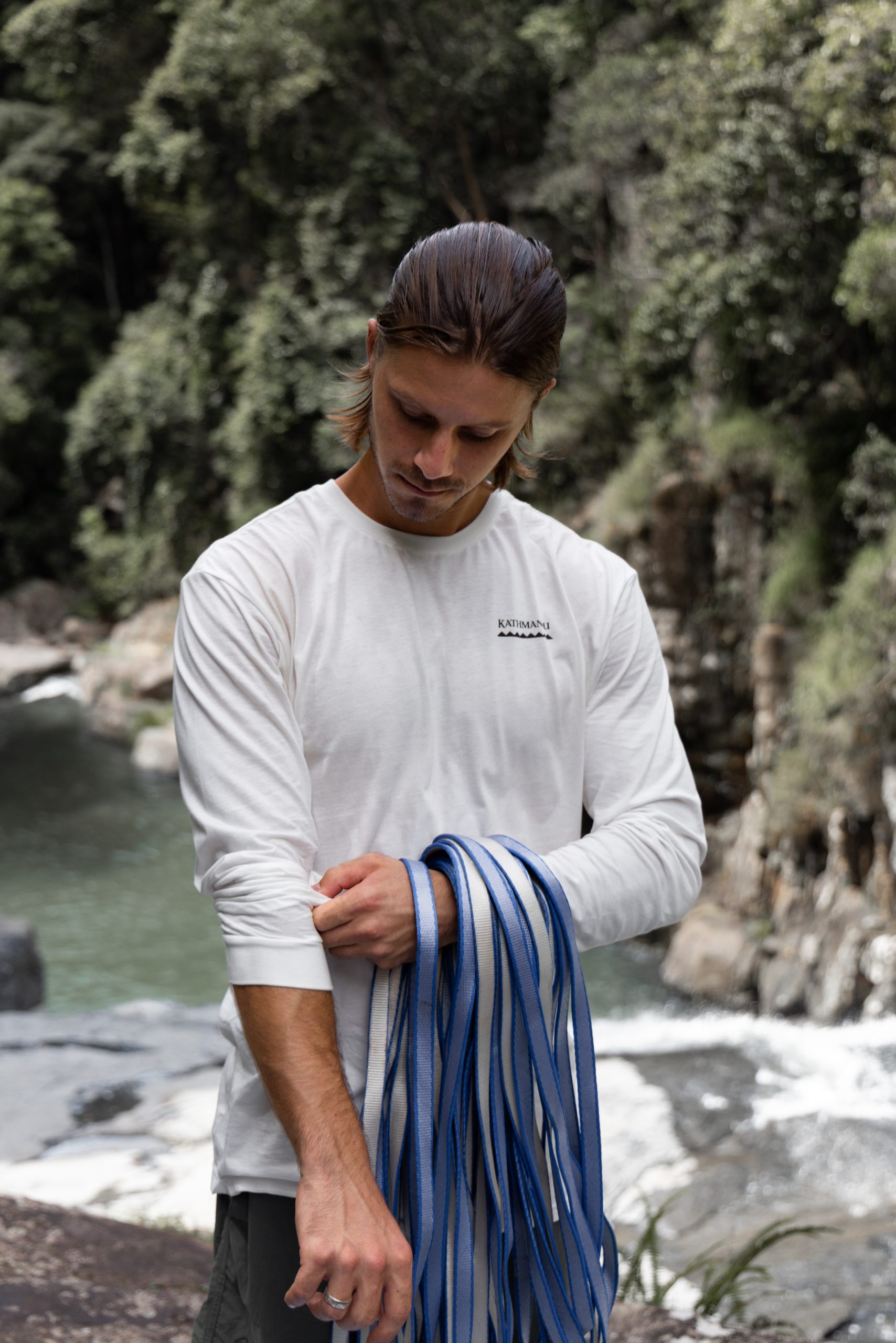
A curious element of Queensland’s slacklining scene is its integration into festival culture. For example, it’s not uncommon to see individuals walking in time to techno music — suspended above a vibing crowd of punters — at grassroots music festivals like Jungle Love or Yonder Festival.
“The best moment of my life was on a highline while Desmond Cheese were playing Yonder Festival at sunset,” says Ferg. “Everyone was dancing. The music was flowing and the sun was beaming through everyone. It was total euphoric bliss.”
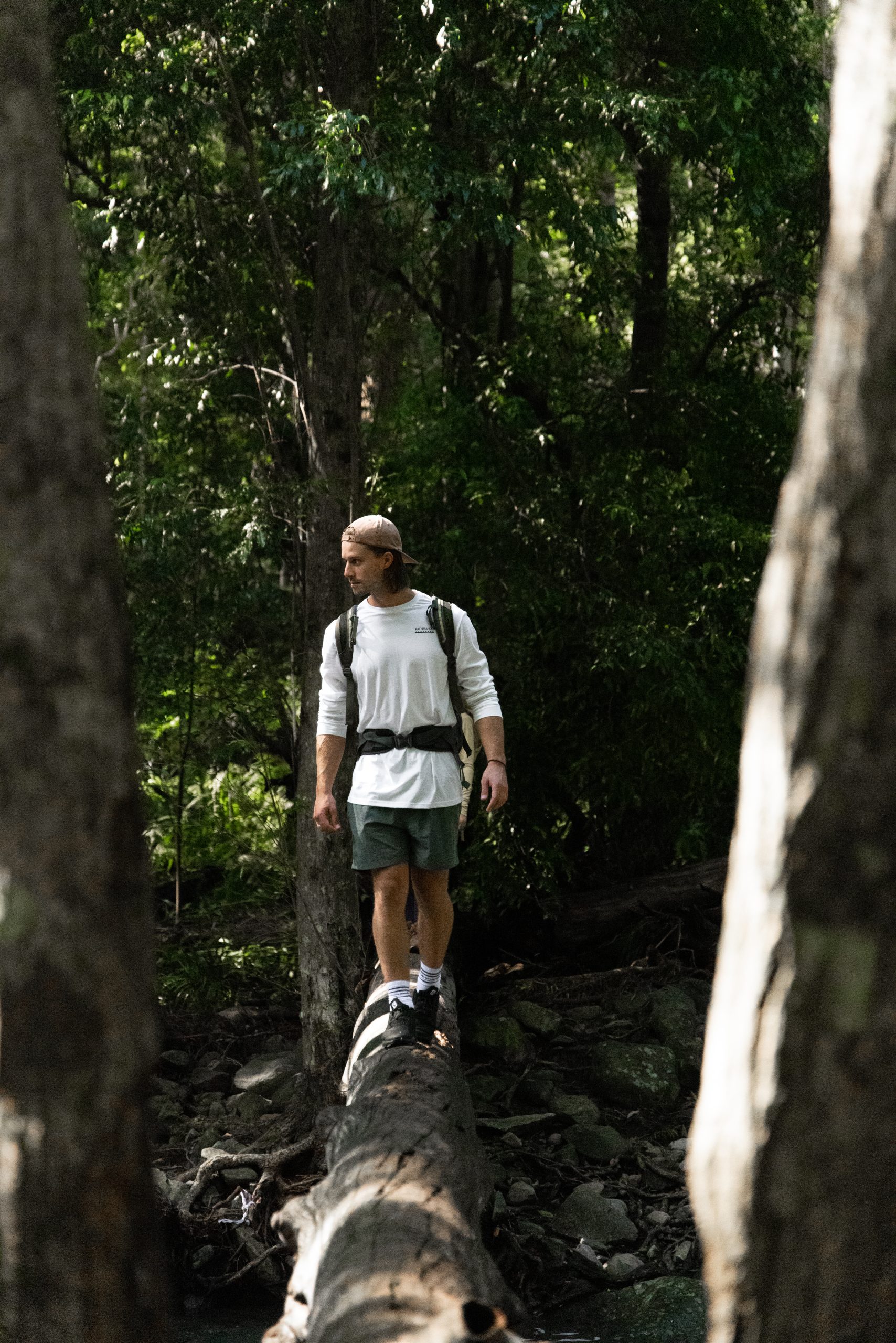
“Music helps you get into that flow state,” says Alex. “If that music comes up on the slacklining, it can ground you and bring you back into your sympathetic nervous system. Personally, I like a lot of electronic and tribal music.”
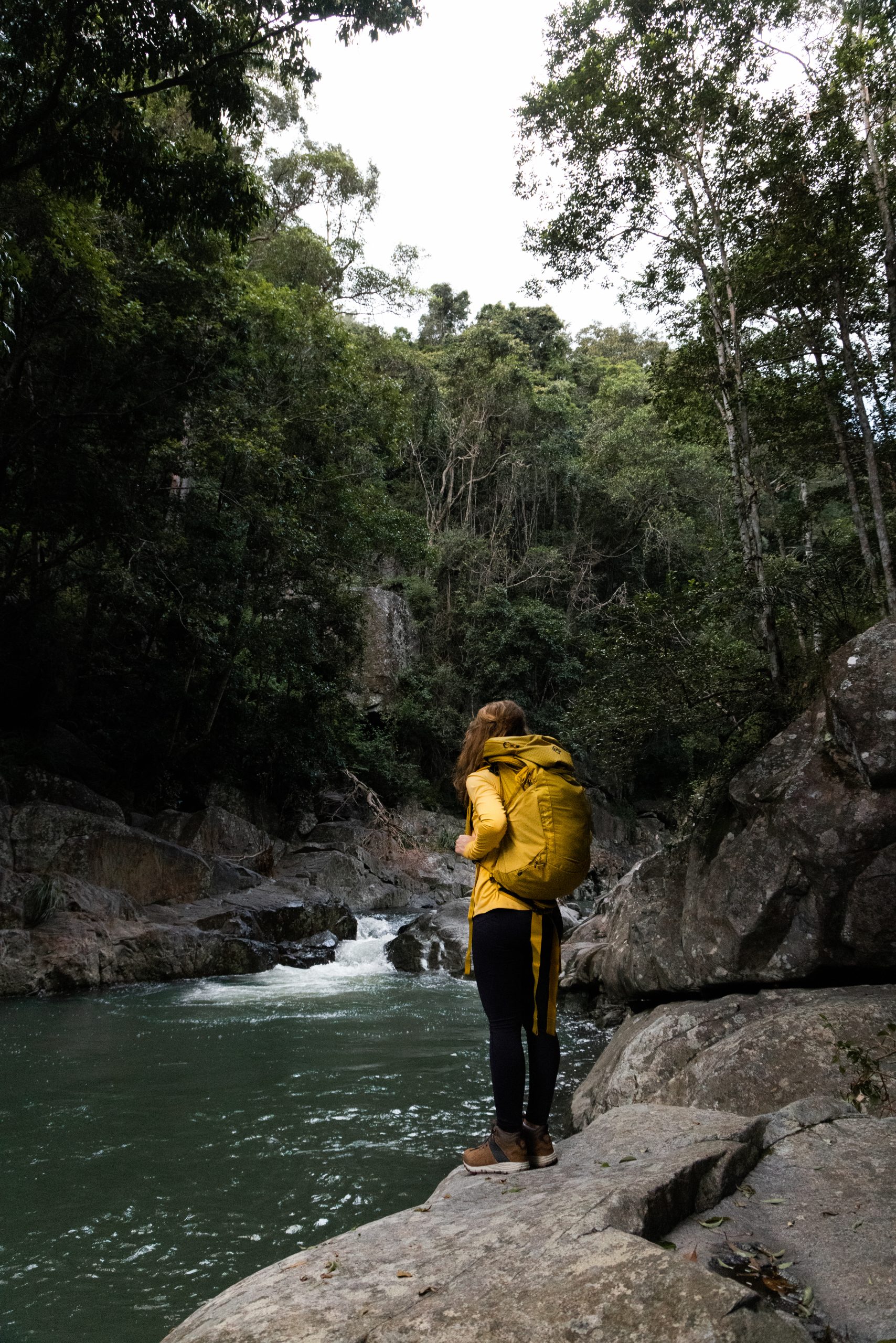
Whether suspended above the horizon or walking through forests, nature has much to offer us. It’s ultimately a question of how deep we choose to go.
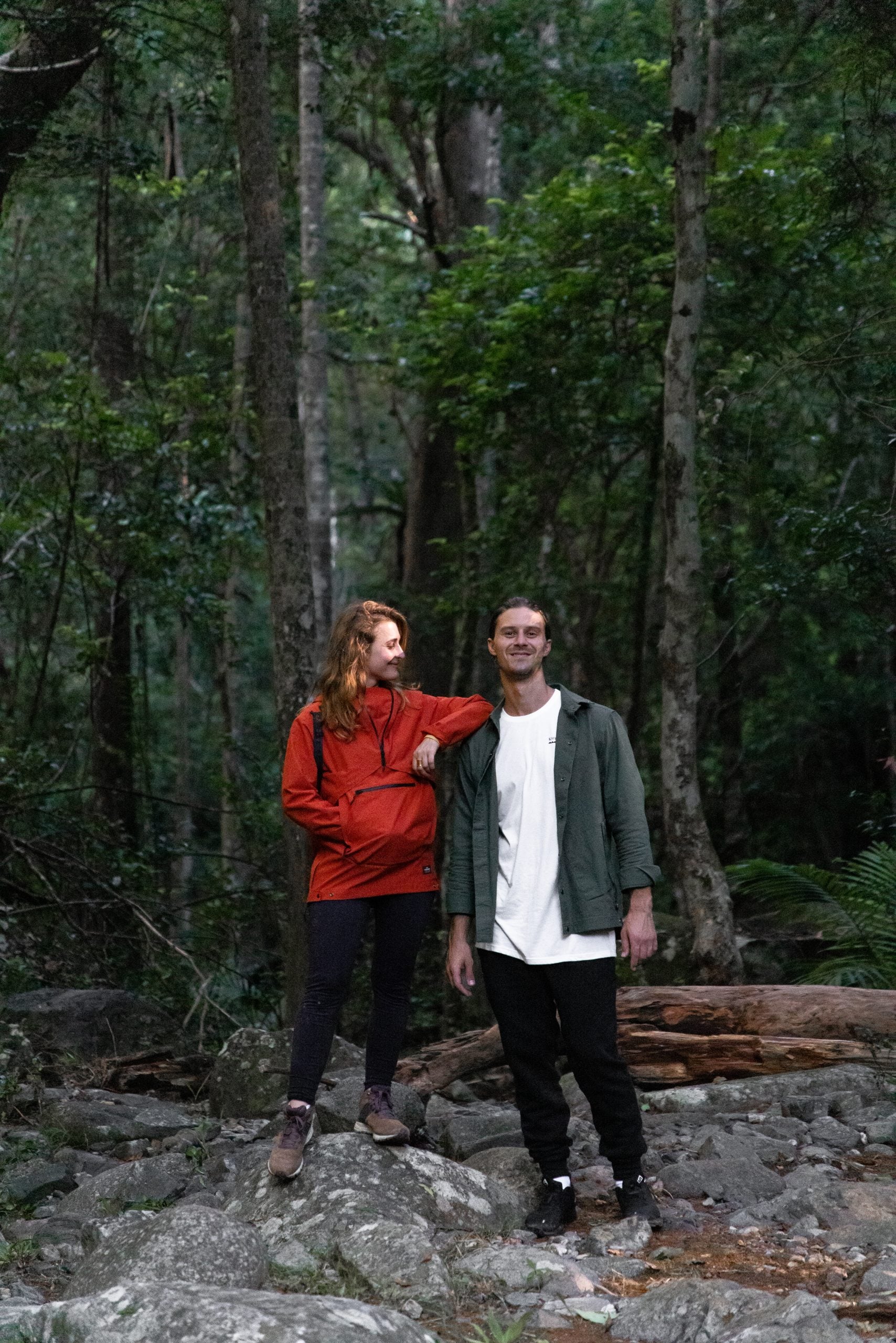
“Since starting to slackline and highline, I’ve been coming out into nature a lot more,” says Alex. “It’s connected me on a deeper level to getting out of the city and being amongst the natural world. Being up on the line — particularly on a high-exposed line — you feel really connected to everything around you. It’s like psychedelics without taking psychedelics. Everything around you stops and you’re part of everything — you’re not separate from it.”
“Nature gives us everything in our lives,” continues Ferg. “When we realise that we are nature, we can understand ourselves on a deeper level. We can appreciate what we have and what we have access to much more.”
Photography by Joel Purssell.
Ferg and Alex are styled in Kathmandu. Shop the new season now.



































